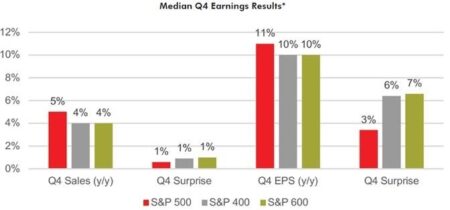Many small business owners plan on retiring over the next several years but have 80% of their wealth tied up in their companies. We discuss with Jonathan Kruger of Rothschild Wealth Partners in Chicago about the ways to unwind this concentrated wealth position.
Larry Light: Why is diversification such an essential topic for small business owners?
Jonathan Kruger: Diversification is vital because most small business owners have a concentrated position. They’ve spent years, sometimes decades, building their business, and often, up to 80% of their wealth is tied up in that single asset. While their business may thrive now, relying solely on it for financial security is risky. Market shifts, industry changes or unforeseen challenges can impact its value. Diversifying helps protect against these risks and creates a more secure foundation for funding retirement and other financial goals.
Light: That makes a lot of sense. Let’s talk about retirement planning. What options should small business owners explore to begin diversifying their financial assets?
Kruger: One of the most accessible options is setting up an employer-sponsored retirement plan, such as a 401(k). The SECURE 2.0 Act has made these plans more affordable and straightforward for small businesses. A 401(k) allows owners to channel income into a tax-advantaged account, which can grow over time. For 2025, owners can contribute up to $23,500, with an additional $7,500 for those over 50. Beyond building retirement savings, offering a 401(k) can also attract and retain top talent, strengthening the business overall. It’s a win-win for the owner and their employees.
Light: What about succession planning? How does it fit into the diversification strategy?
Kruger: Succession planning is critical and often overlooked. It’s not just about selling the business when retirement approaches. It’s about creating a roadmap for continuity and growth. A solid succession plan ensures the business can thrive under new leadership, whether that’s a family member, a trusted employee, or an external buyer. It’s also a way to align the business’s future with your personal values and financial goals. Succession planning can bring stability to employees and stakeholders and, with proper funding mechanisms, provide the financial security you need for retirement.
Light: That ties in well with the idea of knowing your business’s value. How should business owners approach valuation?
Kruger: Valuation is an essential step for any owner planning to diversify. Understanding the value of your business means knowing what you can reasonably expect if you sell. A professional valuation takes into account cash flow, customer base, assets and market conditions. For businesses in industries like construction or manufacturing, seasonality and business cycles also play a significant role. By knowing your value, you can make informed decisions about diversification strategies and negotiations with potential buyers.
Light: You’ve mentioned that many small business owners are nearing retirement age. How significant is this trend, and what challenges does it present?
Kruger: It’s a significant shift. The Exit Planning Institute estimates that 70% of business owners over 50 plan to sell their businesses within the next decade. And the Small Business Administration estimates that some 10 million Boomer-owned businesses will be sold from 2019 to 2029. The challenge is that many owners haven’t prepared for this transition. With most of their wealth tied to their business, they may face financial shortfalls if the sale doesn’t yield what they expect. Planning early, diversifying assets and ensuring the business is attractive to buyers can help address these challenges.
Light: Are there any misconceptions small business owners have about diversification?
Kruger: Absolutely. One common misconception is that diversifying will weaken their business. In reality, strategic diversification—such as contributing to a retirement plan or setting up a succession strategy—often strengthens the business. It shows employees, investors and potential buyers that the business is well-managed and resilient. Another misconception is that diversification can wait until retirement is near. Starting early allows more time for assets to grow and for owners to adjust their strategies as needed.
Light: What advice would you give to small business owners who feel overwhelmed by the idea of diversification?
Kruger: Start small and seek guidance. Begin by setting up a retirement account if you don’t already have one. Then, work with financial and valuation experts to evaluate your business’s current state and identify areas for growth or transition. Diversification doesn’t happen overnight, but taking small, deliberate steps can lead to significant long-term benefits.
Light: Any final thoughts for small business owners?
Kruger: Yes, don’t underestimate the value of planning. Your business is a significant achievement, but it doesn’t have to be your only financial resource. Diversification ensures you have a safety net and opens opportunities for a comfortable retirement and financial independence. The earlier you start, the more options you’ll have down the road.
Read the full article here
















